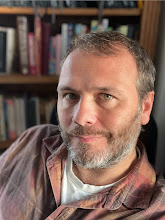This is the start of the dust-jacket blurb for a 1956 novel called Thin Ice, by Compton Mackenzie (of Whisky Galore fame)
'Perhaps it was strange that George Gaymer should have become a friend of Henry Fortescue at Oxford in the last years of the nineteenth century. Politically they were poles apart. Henry, already president of the Union, had a brilliant future ahead of him; George was good-hearted but mediocre. Above all, Henry was a homosexual, George was not. Yet George's loyal friendship stood many test across more than forty years, and was reliable when that of Henry's own kind proved transitory or even treacherous.'
Wow. Bear in mind this is meant to be a bold and progressive novel, in which homosexuals are treated with daring sympathy. Despite their inherently treacherous nature.
I also enjoy the ways in which early twentieth century authors let you know a character is gay without actually using the word. Any word.
This is from James Thurber: 'Winney was, by a familiar caprice of nature, incapable of emotional interest in females'.
And this is from Ngaio Marsh: 'Bertie was a bachelor, and most understandably so.'
Wednesday, 8 June 2011
Not that there's anything wrong with that.
Posted by John Finnemore at 4:25 pm
Labels: Quotations
Subscribe to:
Post Comments (Atom)





8 comments:
I'm gay myself and my grandmother's favourite way of announcing it is to say "He's not the marrying kind!"
That's such a can of worms - perceptions of homosexuality. There are whole tomes written about various ways of 'coding' homosexuality in literature and on film ... 'The Celluloid Closet' and 'The Lavender Screen' are classics. But there were some odd prejudices in existence at the time and the fact that Mackenzie wrote the book at all is to his credit.
I used to work in a medical library and homosexuality was shelved with the mental disorders (I organised the ceremonial destruction of one particularly offensive specimen); thank goodness we've all moved on a bit from that!
At my university, in the uni bookstore (at Social Sciences Department) homosexuality was put on the shelf with social patologies... We fought our battle with the owner, now it's fine ;P
Statin "homosexual" as a "fun fact" is also slightly heterosexist, don't you think?
I'm bisexual myself, and while my father refers to my ex-boyfriends as "your boyfriend", he refers to an ex-girlfriend as "your er, um, friend, er". The expressions "er", "um", and "blimey" and embarrassed clearing of the throat are obviously underused in civil partnership ceremonies, and should therefore be played up until the entire assembled party sounds like Hugh Grant.
I'm curious as to the use of words like "decadent", "flamboyant" and "artistic" to mean homosexual, as if everyone who's gay is having wild, debauched parties and flicking paint at canvases with a feather boa in their spare time. I have a gay friend named Mark who has never, to my knowledge, done any of the above. (He watches Doctor Who. Lots of Doctor Who.)
I vote that a selection of classic novels get rewritten in Polari, and see how many of the straight audience get it (although its underground use was pretty much killed off with Round the Horne, to be honest...)
"Bertie was a bachelor, and most understandably so."
That'd be the description of a Jeeves & Wooster novel, right?
A couple of years ago, I was reading one of the Mrs Bradley Mysteries (written and set during World War Two), and was rather fascinated to find one of the characters described to a second character as being "g.a.y.", which a footnote explained meant "good as you."
Reminds me of that Peter Cook and Dudley Moore sketch with its recurring, "Isn't it funny how he never married?"
My elderly Auntie used to refer to a gay person as ... he/she is "a friend of Dorothy".
Post a Comment